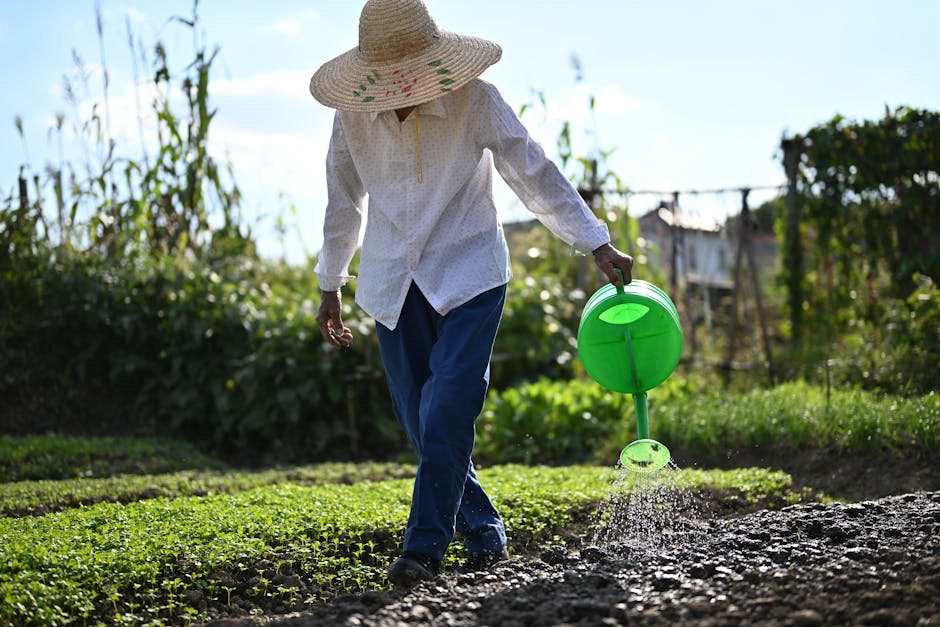The global agricultural landscape is facing unprecedented challenges. Climate change, resource depletion, and the need for enhanced food security necessitate a fundamental shift towards sustainable farming practices. While many innovative approaches exist, their widespread adoption remains a significant hurdle. This article delves into the multifaceted issues hindering widespread adoption and explores strategies to overcome these obstacles, ultimately fostering a more resilient and environmentally conscious agricultural sector.
A critical initial step in promoting sustainable farming lies in recognizing the varied needs and contexts of different agricultural systems. Large-scale commercial farming operations often grapple with logistical hurdles, while smallholder farmers in developing countries face financial constraints and a lack of access to resources. A tailored approach, accounting for these diverse circumstances, is crucial. This necessitates a blend of targeted interventions, including educational programs, technological advancements, and financial incentives.
A major impediment to widespread adoption is the perceived economic disadvantage of sustainable practices. Farmers often perceive organic farming or integrated pest management as less profitable in the short term compared to conventional methods. Financial incentives, such as subsidies, tax breaks, or market premiums for sustainably produced food, can significantly mitigate this perception. Government policies fostering a market demand for sustainable products play a pivotal role. Consumers, driven by growing awareness of environmental and social impacts, are increasingly seeking out ethical and sustainable food choices. This rising demand creates a market pull for producers adopting sustainable practices, reinforcing their economic viability.
Educational programs are indispensable in bridging the knowledge gap between traditional and sustainable agricultural methods. Farmer training initiatives, workshops, and access to online resources can empower producers with the technical skills and knowledge necessary to effectively implement these practices. Furthermore, transparent communication about the benefits of sustainable agriculture, including environmental preservation, improved soil health, and enhanced biodiversity, is crucial. Exemplary farms and case studies highlighting successful transitions can serve as inspiring models for other farmers.
Technological advancements hold significant potential to facilitate the widespread adoption of sustainable farming methods. Precision agriculture, utilizing technologies like GPS and sensors, allows for targeted application of inputs, reducing waste and maximizing efficiency. Improved irrigation systems, such as drip irrigation, can conserve water resources. The integration of digital tools and mobile applications can provide real-time data and support to farmers, aiding in informed decision-making. Encouraging research and development focused on creating cost-effective and accessible technologies tailored to diverse farming contexts is paramount.
Collaboration and partnerships are vital to creating a supportive ecosystem for sustainable farming. Collaborations between government agencies, research institutions, agricultural organizations, and private sector companies can create synergies, share resources, and coordinate efforts. Creating farmer networks and cooperatives enables knowledge sharing, collective action, and economies of scale, allowing farmers to pool resources and collectively negotiate for better market access. Furthermore, fostering collaborations with consumers through direct-to-consumer marketing channels can provide a valuable link between farmers and customers, rewarding sustainable practices.
Financial access plays a pivotal role in supporting the transition to sustainable agriculture. Microfinance initiatives and access to credit can provide smallholder farmers with the capital required to invest in sustainable farming practices. Long-term financing options for larger farms can ease the initial financial burden of adopting new technologies and management approaches. Further, the establishment of transparent and accessible market mechanisms, such as certified labels or standards for sustainable products, can enhance the financial attractiveness of these farming methods.
Regulatory frameworks play a key role in fostering sustainable practices. Government regulations enforcing environmental standards and promoting sustainable agricultural practices can create a level playing field for all farmers. Policies encouraging diversification of crops and reducing reliance on monocultures can promote resilience against climate change impacts. Moreover, stringent enforcement of existing environmental regulations, coupled with innovative and flexible regulations promoting sustainable practices, are key ingredients for promoting a more sustainable agricultural sector.
Ultimately, fostering a culture of sustainability within the agricultural sector demands a holistic approach. It is crucial to recognize the interplay between economic, social, and environmental factors. Empowering farmers, providing access to technology and resources, promoting financial incentives, and establishing transparent market mechanisms are crucial elements. By addressing these complex challenges with a combination of targeted interventions and collaborative efforts, we can accelerate the adoption of sustainable farming practices, ensuring a more resilient and environmentally responsible agricultural system for future generations. A paradigm shift in agriculture, driven by sustained commitment, collaboration, and innovation, is critical to feeding a growing global population without compromising our planet’s precious resources.






